

What Is Enamel Hypoplasia?
Enamel hypoplasia is a dental condition in children that affects how the enamel on their teeth develops. The first sign is discoloured “chalky” patches on your child’s teeth, and they may look marked or pitted.
This developmental condition can make your child’s teeth more prone to tooth decay, so contact us as soon as you spot any of the signs. Our paediatric dentist in Brisbane is dedicated to keeping your kids’ teeth strong and keeping their smiles healthy and happy.

What Causes Enamel Hypoplasia?
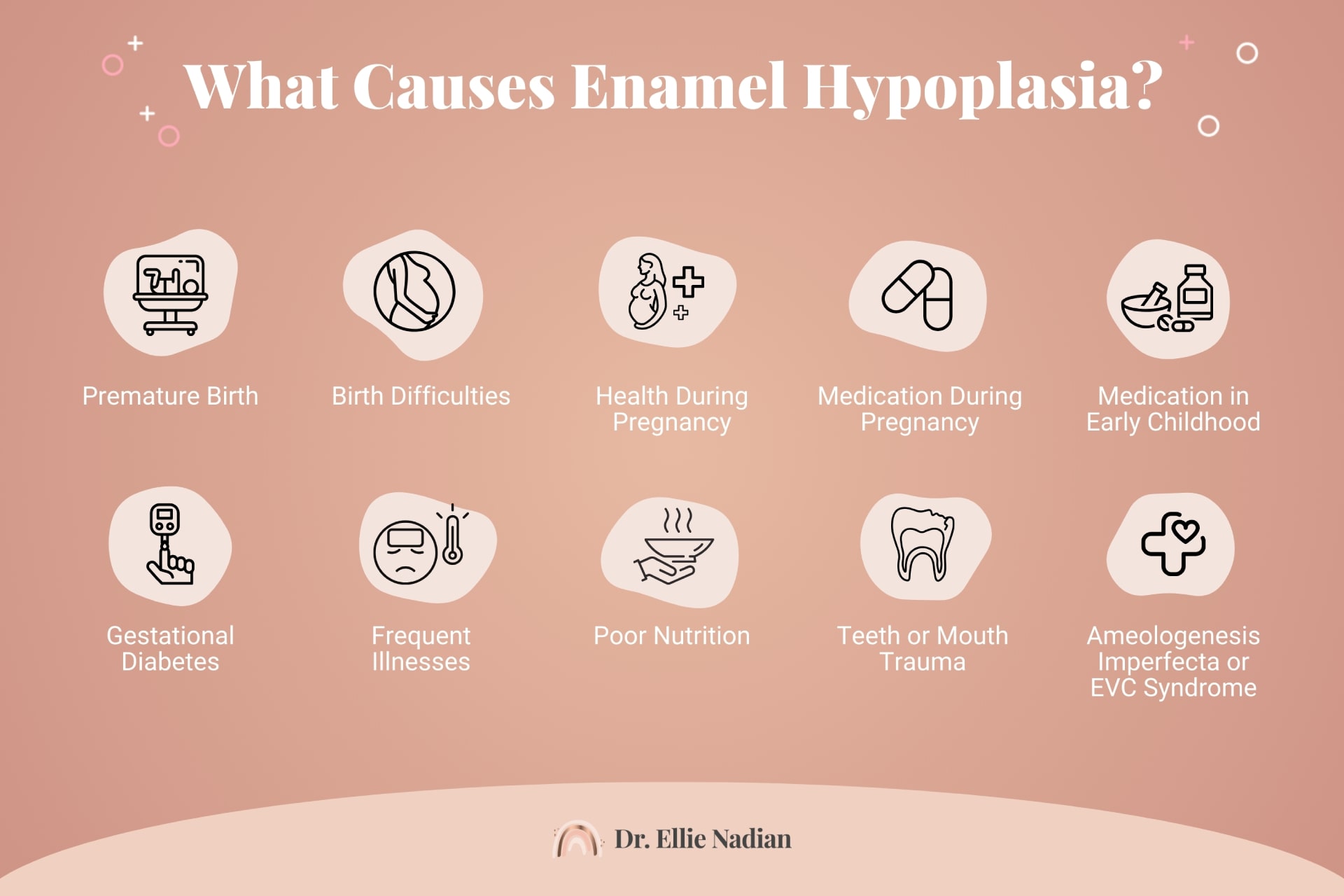
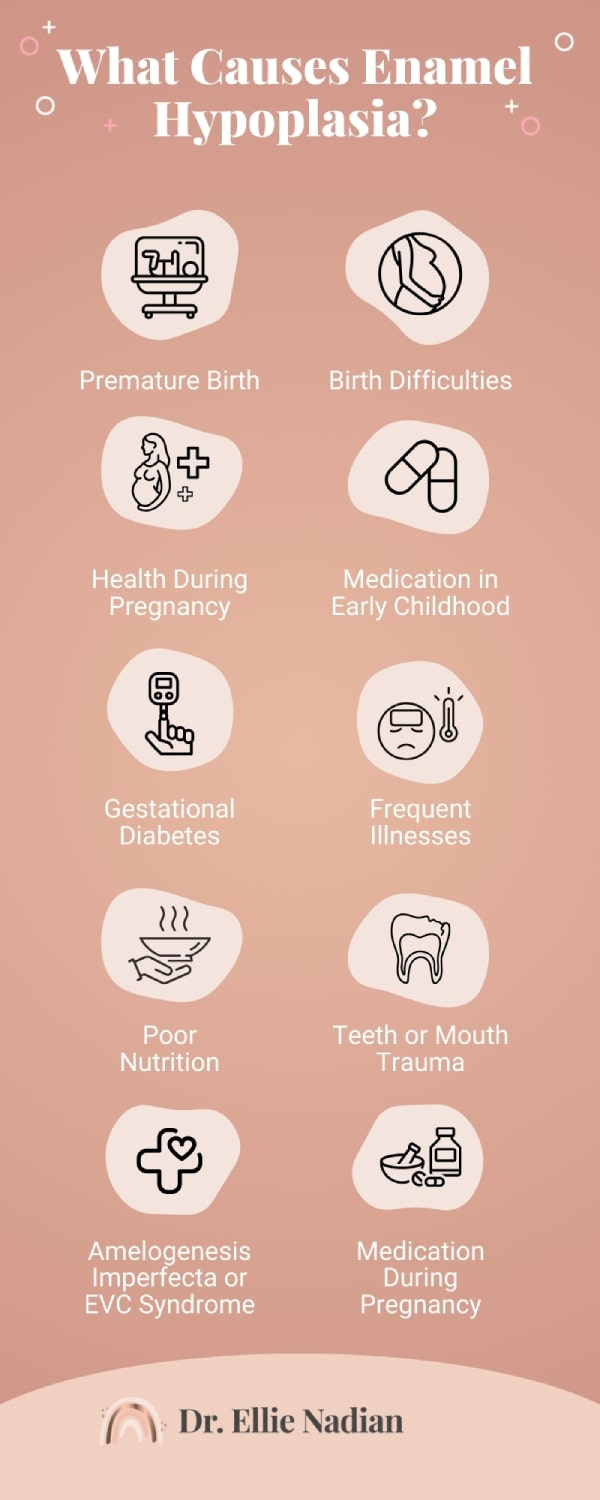
Enamel hypoplasia doesn’t have a single cause; however, it does have several risk factors. These include:
- Being born prematurely
- Difficulties during birth
- Mother’s poor health during pregnancy
- Medication taken by the mother during pregnancy
- Medication taken by children in early childhood
- Gestational diabetes in the mother
- Frequent early childhood illnesses (middle ear infections, high fevers, etc.)
- Poor nutrition during childhood development
- Trauma to the teeth or mouth
- Amelogenesis Imperfecta or Ellis van-Creveld (EVC) syndrome (rare genetic conditions)
In some cases, more than one factor can be at play, which will increase your child’s risk of developing enamel problems. Get paediatric dental treatments as soon as possible, regardless of the cause!
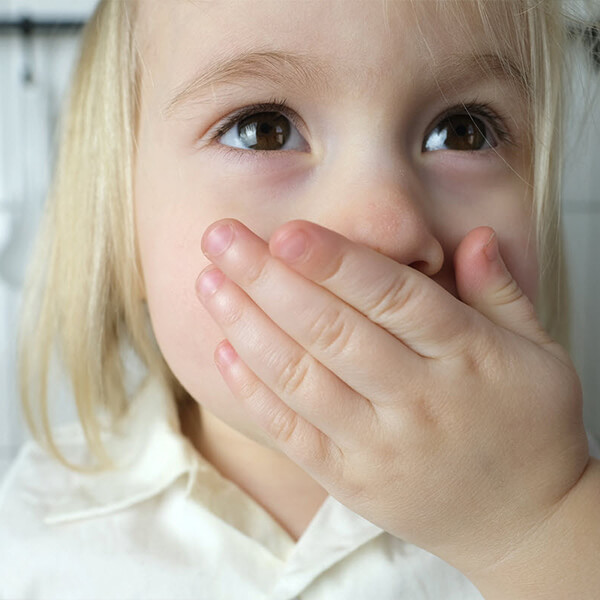
Can Enamel Hypoplasia Affect Both Baby Teeth and Permanent Teeth?
Yes, enamel hypoplasia can affect both baby teeth and permanent teeth. Enamel formation begins in utero and continues until your child is about 8 years old. Anything that disturbs the process, either during pregnancy or during childhood, can lead to enamel defects.
Moreover, conditions that affect the mother during her pregnancy may disrupt the formation of enamel before the little one is even born. In this case, their baby teeth may develop with weak enamel from the very beginning.
By the time your child is about 5 years old, the enamel should be formed on their permanent front teeth. During this time, your child may develop enamel hypoplasia on those front teeth for any of the reasons listed above.
Your child’s second molars (the teeth most prone to enamel hypoplasia) usually only form enamel around age 7 to 8. So, if there is trauma to your child’s mouth or teeth or an infection at this time of their life, it can lead to discoloured molars and weak, unprotected permanent teeth.

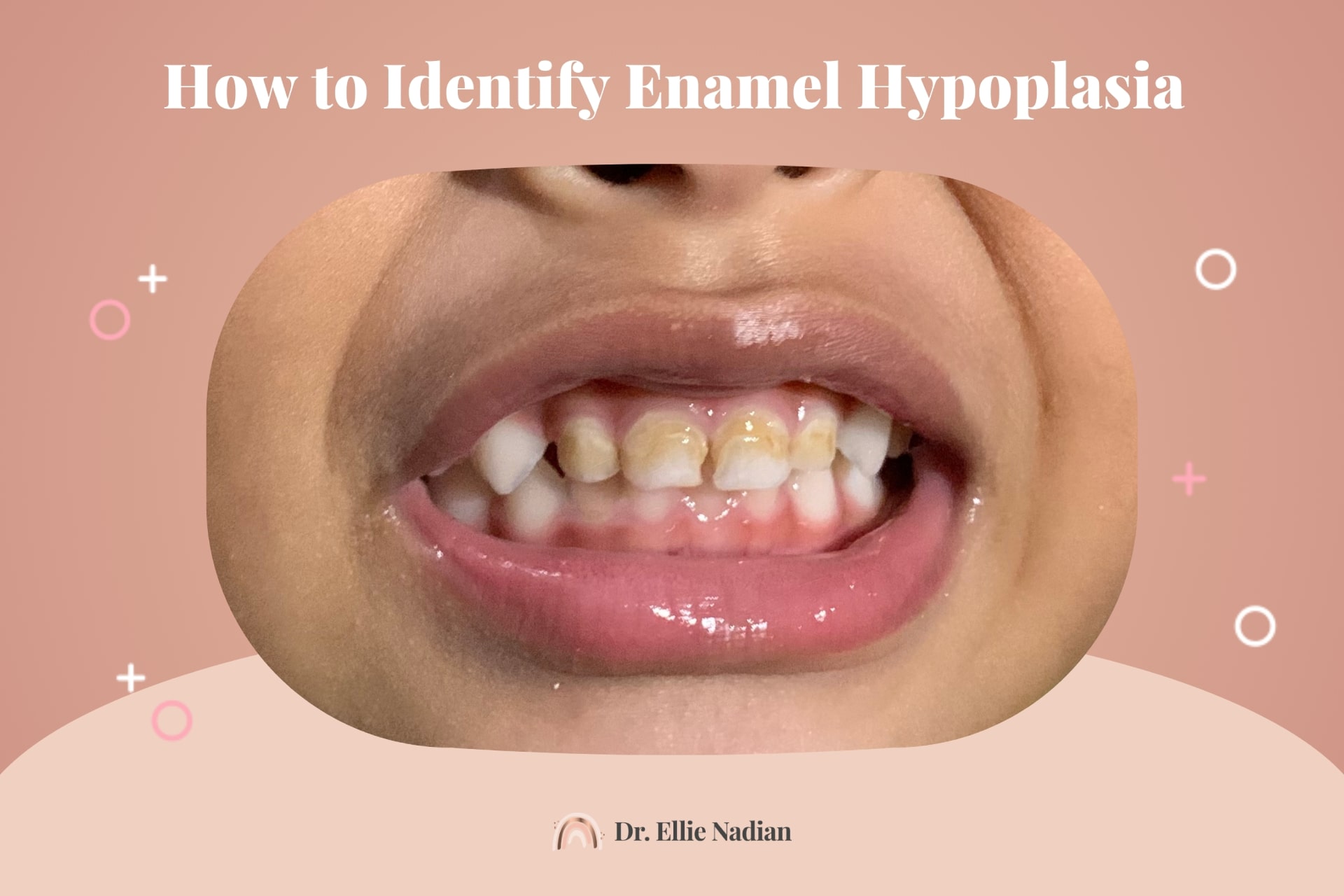
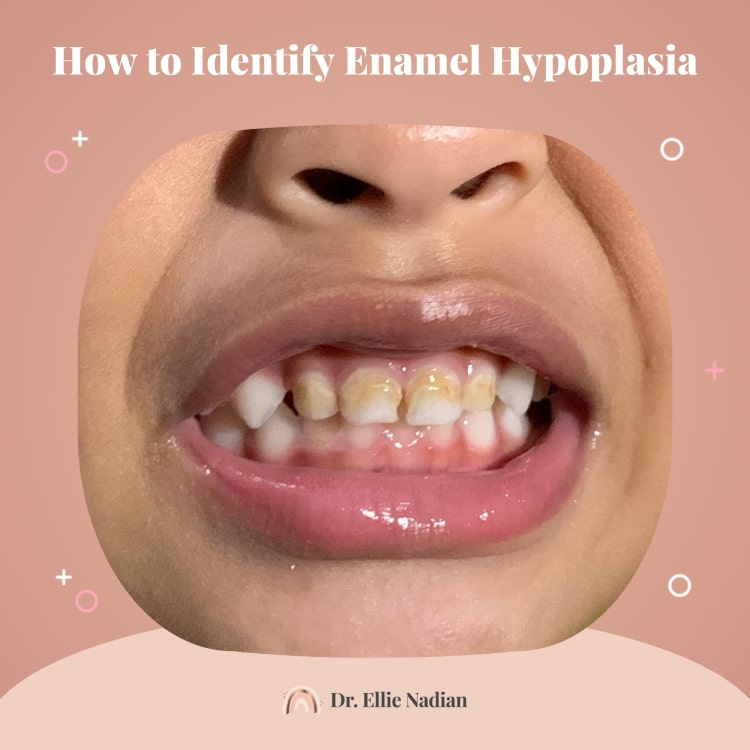
How Do You Know If Your Child Has Enamel Hypoplasia?
The first signs of enamel hypoplasia are brown, yellow, cream-coloured, or white spots on your child’s teeth, even after brushing. You might also see grooves, streaks, or pit marks on the surface of your little one’s teeth.
Along with the physical signs, common symptoms of hypoplastic teeth include being more sensitive to heat and cold, so you may notice your child complaining about certain foods and drinks. There is also an increased risk of the enamel breaking down completely, which may lead to worse kiddies dental problems as the protective layer diminishes.
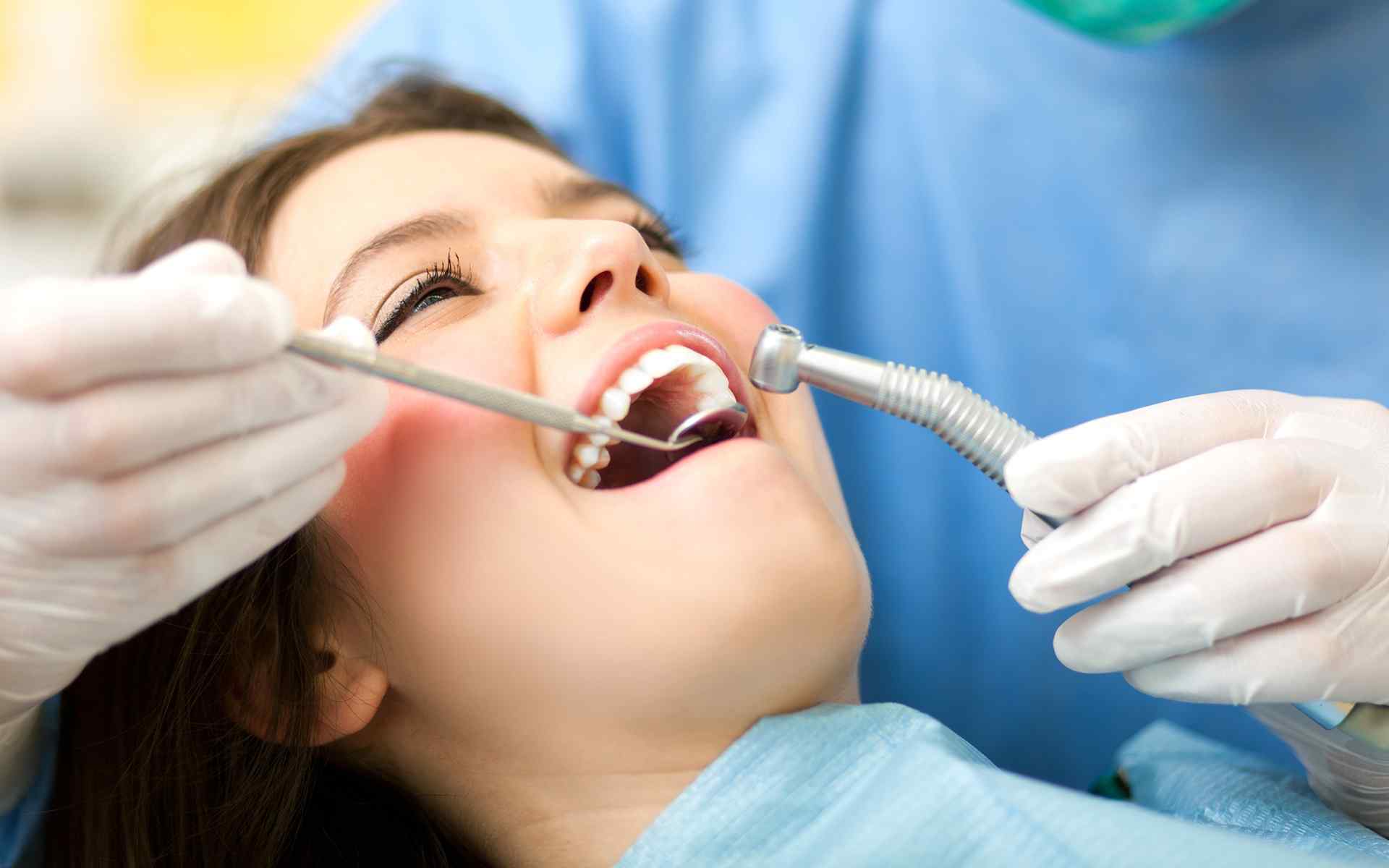
What Happens if You Leave Enamel Hypoplasia Untreated?
Your child’s weakened enamel could lead to pain and tooth decay, as well as other potentially worse issues. If their chalky teeth are not treated by a dental professional as soon as possible, these problems could include:
- Fragile teeth that chip or break easily
- Pain as a result of tooth sensitivity to hot and cold foods
- A higher risk of dental decay, leading to more complex treatments
- Discoloured, marked teeth which may affect your child’s confidence
Catching the signs early is the best way to prevent the condition from getting serious. Schedule a paediatric dental care appointment with us today to prevent permanent damage to your child's teeth!

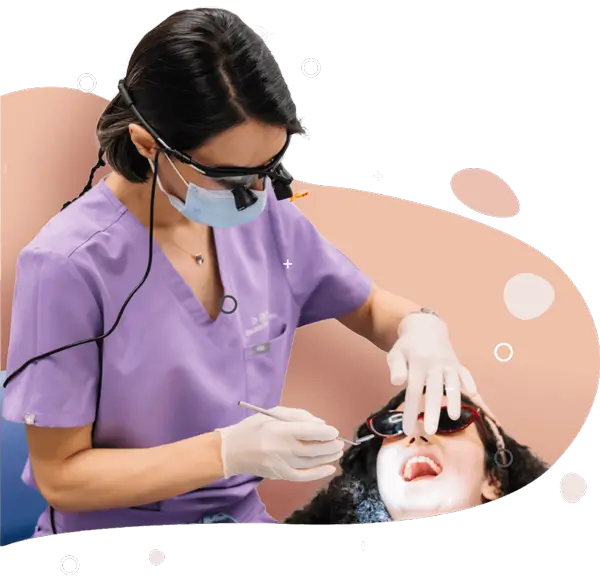
Treatment Options for Enamel Hypoplasia
Dentists for kids choose enamel hypoplasia treatment based on how severe the enamel defect is and the condition of your child’s teeth. The paediatric dentist may choose one of the following:
- Fluoride treatment
- Tooth remineralising cream
- Restoring damaged teeth (dental crowns or composite veneers)
- Extracting badly damaged teeth
- Orthodontic management after treatment
The goal of treatment for hypoplastic tooth enamel is to reduce sensitivity, restore the function of the teeth, as well as prevent further decay and the need for cosmetic dentistry later in life. Additionally, children with dental hypoplasia should go for regular check-ups to make sure their teeth aren’t getting worse.

General Dentistry
Aesthetic Dentistry
Teeth Whitening
Child Dentistry


Tiny Smiles
Everyday!
We treat baby tooth pulp when it is infected or painful.
Enamel Hypoplasia FAQs
Yes, children with enamel hypoplasia teeth are more likely to develop cavities, because the weakened enamel doesn’t protect their teeth very well. Sugary and acidic foods can damage healthy teeth, but do more damage to hypoplastic teeth.
Ask our paediatric dental specialist about preventative care like sealants and advice on oral hygiene. Be sure to schedule regular paediatric dental check-ups.
Enamel hypoplasia isn’t painful, but it can make teeth more sensitive. Sensitive teeth can lead to pain when eating or drinking something very cold or very hot. There’s also an increased risk of cavities, which may cause pain.
Check out our other services: Emergency Dentistry for Kids, Sleep Dentistry, and Baby Tooth Extraction.
Our paediatric dental care team is ready to restore your child’s happy and healthy smile! Contact us today to get your child’s oral health started on the right foot.




Reviews
Louise Gibson
“Enamel Hypoplasia”
Dr Ellie was absolutely superb. She performed dental work at St Andrew’s on our five year old and was extremely patient, kind and calming. Our son has special needs as well as having endured lots of medical procedures (which makes him very nervous of medical intervention). Her approach was very reassuring for all of us. Thank you, the Bersz Family ❤️
Courtney Turner
“Enamel Hypoplasia”
The level of compassion, respect and understanding for her patients is unmatched. Her work is wonderful and completely put us at ease sending in our 3 year old.
Nick Bright
“Enamel Hypoplasia”
We love Dr Ellie, she has been amazing with making our boy comfortable and her dental work has been awesome. 100% recommend her for children.
Andrew Stapleton
“Enamel Hypoplasia”
Dr Ellie and her staff provided outstanding professionalism and experience with a personal touch. Dr Ellie was genuinely warm and compassionate with our little boy. Her professional advice was considerate and comforting. She demonstrated a great deal of integrity with her fees which was very much appreciated. I would highly recommend her for your specialist dental needs.
Maryam Montafej
“Enamel Hypoplasia”
Dr Ellie is extremely professional, knowledgeable and caring. Her approach with my daughter was so amazing at the first visit (2.5 years old) that now she looks forward to her dental appointments. If you are looking for the best Paediatric dentist, look no further. Dr Ellie is truly the best.